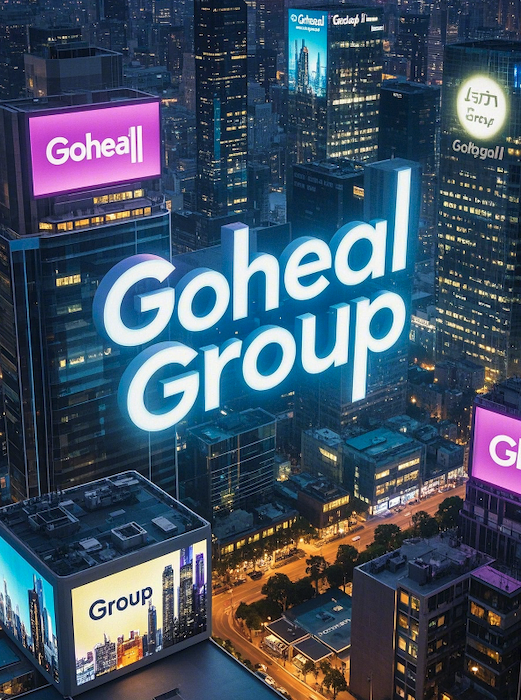"Zhuang Zhou dreamed of being a butterfly, and it was a butterfly." Zhuangzi used a dream to discuss truth and falsehood, and today's capital market uses a new "dream" - ESG system to reshape the value assessment logic of enterprises.
In the past, the valuation formula for mergers and acquisitions was calculated based on cash flow, assets, and industry ceilings, but now, the three dimensions of "environment, society and corporate governance" are quietly becoming the most difficult to quantify but the most important variables in valuation. The capital market seems to be undergoing a "Zhuang Zhou-style" awakening: the sustainable story of enterprises is rewriting the way value is expressed. In this wave of valuation logic reshaping, Goheal, as a global leading capital operation consulting agency, was the first to capture this trend, and through a series of forward-looking studies and case studies, it provides listed companies and investors with a unique perspective.

American Goheal M&A Group
If the past mergers and acquisitions were like a "meat-eating and drinking" underworld business, then the current mergers and acquisitions are more like a modern imperial examination of "cultivating oneself, managing the family, governing the country and pacifying the world". It doesn't matter how much money you make, it only asks why you are sustainable. ESG indicators are like an invisible ruler, which not only measures your current health, but also predicts whether you can run further in the future.
Valuation is no longer just a numbers game
Let's take a look at a small story first: In 2024, when a large European chemical company planned to sell its Asian subsidiary, it found that the "carbon neutrality roadmap" disclosed in its ESG report became one of the buyer's most concerned issues. In the end, the subsidiary was significantly reduced by 20% in the valuation negotiation because it failed to clearly explain its 2030 carbon emission plan. This is not an isolated case.
Goheal pointed out that currently, about 60% of the world's top institutional investors include ESG ratings in the weighted items of the valuation model when evaluating M&A transactions. A target with a high ESG score not only performs well in environmental protection and social responsibility, but also often means lower potential regulatory risks, smoother future financing, and a more solid public image. This series of "soft values" are being reflected in the valuation in the form of "hard discount rates".
To put it more bluntly, in the past, it was "making more money = being valuable", but now it is "living longer + living better = being more valuable". Valuation is no longer just a simple financial inventory, but has become a comprehensive consideration of how moving and credible the company's future story is.
Environmental variables: not just green, but also a ticket to a new track
Another example is "E" - environmental protection indicators. This item is often mistakenly believed to be just a reflection of environmental protection costs. In fact, the real investment logic is that a company that values the environment is more likely to adapt to the trend of a low-carbon economy and thus have long-term competitiveness.
Goheal believes that the higher the "environmental score" of industry targets such as new energy and green manufacturing in M&A valuations, the more obvious the price-to-book ratio premium trend will be. If traditional manufacturing and energy industries lack a transparent disclosure mechanism for carbon emissions, they will almost certainly be labeled as "high risk" in negotiations. The "environmental" dimension of ESG has become a ticket for some companies to "enter the future economy".
Social responsibility: an invisible weapon for recruiting, retaining, and stabilizing customers
The "social" dimension is often underestimated. However, in the current business ecosystem where public opinion is highly sensitive, social responsibility and employer brand image have even become the core controversial points in cross-border M&A negotiations.
Take a well-known consumer goods company as an example. In a cross-border M&A, the media exposed the existence of "child labor suspicion" in the supply chain, which directly led to the buyer's request to review the due diligence report, the negotiation cycle was extended by nearly half a year, and the final valuation shrank by 15%. Goheal pointed out that the impact of such "non-financial" events on transaction efficiency and valuation is increasing year by year, especially in areas with close relationships with consumers such as retail, food, and medicine. Social responsibility has become a "valuation pop-up window" - it seems not to be triggered, but in fact it will be stuck once something goes wrong.
For capital, being able to hire the most compliant people, use the most transparent processes, and assume the most reasonable social role are prerequisites for whether a company is trustworthy. And these are precisely the most easily overlooked but most fatal link in ESG.
Governance structure: the reassurance behind valuation
"G" - governance structure, is not only the composition of the board of directors and fair compensation system, but also the "trust index" in valuation.
There was a Hong Kong-listed technology company that suddenly suffered a sharp drop in valuation due to chaotic board governance and frequent changes in several senior executives on the eve of being acquired by an overseas private equity fund. The private equity fund eventually cut its offer by 30% on the grounds of "lack of governance stability". Goheal summarized a core judgment point in such cases: if a company lacks a transparent governance mechanism and cannot form an effective strategic check and balance and risk management system, its "attractiveness" to buyers will decline rapidly - no matter how beautiful the financial model is, it cannot support a chaotic management team.
In M&A transactions, "G" is not a plus point, but a bottom line. If there is a problem with the governance mechanism, all ES and future stories are castles in the air.
A new version of the capital narrative is quietly loading
From the "burning money for growth" in the digital age to today's "sustainable value logic", the valuation model has changed from a two-dimensional to a three-dimensional, or even a five-dimensional model. In this model, ESG is no longer an additional parameter that adds icing on the cake, but part of the core algorithm.
In a recent cross-border M&A case led by Goheal, the "ESG weighted model" was introduced as a core negotiation tool to help buyers more systematically identify long-term potential and hidden risks in value assessment. This method is also increasingly being widely adopted by global M&A participants, marking a new era in valuation logic.

Goheal Group
If you are the head of a company, don't just ask "how many times can my profit increase next year", but ask: "Is my company's governance transparent? Is the environmental protection strategy truly executable? Do I have enough responsibility commitment to employees, society, and the future?" Because this is the new answer that the capital market uses to see whether you are worthy of "exchanging a higher valuation for the future."
Epilogue: Will the next step in the valuation formula be sentiment indicators?
Today, ESG indicators have quietly become an "invisible footnote" in valuation. Will it evolve further in the future? For example, introducing "employee satisfaction", "brand sentiment index", and "data ethics model" into the valuation system? As capital gradually moves from rationality to "soft rationality", are we entering an "era of humanistic valuation"?
Welcome to leave your insights in the comment area: Do you think that the subjectivity of ESG indicators will in turn undermine the scientific nature of valuation? Or have you ever encountered a real case where ESG issues affected the price of an M&A? Goheal also welcomes all companies and investors to discuss together - in this turbulent new era of capital, how to stand at the forefront of valuation, rather than being left on the beach.
[About Goheal] Goheal is a leading investment holding company focusing on global M&A holdings, focusing on the three core business areas of listed company control acquisition, listed company M&A and restructuring, and listed company capital operation. With its deep professional strength and rich experience, it provides companies with full life cycle services from M&A to restructuring to capital operation, aiming to maximize corporate value and achieve long-term benefit growth.